When Petra Braunová was working as an au pair, there were no agencies in Slovakia to help find stays abroad connected to childcare. As soon as the Iron Curtain fell and the borders from the communist bloc to the West opened, she set out for France at the instigation of her father.
"I went into the unknown solely with the address of my father's best friend from the Buchenwald concentration camp. My father taught me French and as a little girl I wrote his friends in France long letters full of mistakes," Braunová recalled."I went into the unknown solely with the address of my father's best friend from the Buchenwald concentration camp. My father taught me French and as a little girl I wrote his friends in France long letters full of mistakes," Braunová recalled.
Though her father's friend welcomed her in Paris like his own daughter, she did not want him to keep an eye on her all the time. "I soon met young French people and they offered me the au pair job. I accepted it without hesitation because I had no idea what it was all about."
Her mother was not happy that she went abroad. She was angry and worried about her. "Mobile phones did not exist. We were paradoxically much freer than people are today," she maintained.
She wrote letters to her friends about how great were the children she looked after. She kept the worse situations to herself.
The housewife was not willing to talk to her about anything other than the children. Braunová felt like a maid. She authored a book about her experience in 2004, which she titled Czech Maid or I Was an Au Pair.
"If I could go back in time, I would certainly not try to make friends with the children's parents, but I would accept the fact that I work for them, so the offer of being on first-name terms is out of the question," Braunová said.
Not work, but exchange
Anthropologist Zuzana Sekeráková Búriková from the Institute of Ethnology and Social Anthropology of the Slovak Academy of Sciences, who has long focused on the topic of au pairs in her research, confirmed that families seldom talk to au pairs about anything other than their responsibilities.
"Many au pairs were bothered that they were basically just a living vacuum cleaner. Or that the depth of their relationship with the children and the children's relationship with them was not taken into account in family decisions," said Sekeráková Búriková.
According to her, au pairs often decorated their rooms with photographs of the children they took care of or with pictures the children drew. "When the au pairs later started working as cleaners, nurses or waitresses, the pictures accompanied them," the anthropologist said.
Becoming an au pair turned into a phenomenon in Slovakia and the Czech Republic after the 1990s. It was one of the few easy and legal ways to learn a foreign language, get to know other countries and cultures, as well as gain access to a local labour market for little money.
At the time, hundreds of young Slovak girls and dozens of young Slovaks went abroad to take care of children and help with housework where they were provided with housing, food and pocket money.
This pocket money was not negligible - it corresponded to a teacher's salary in Slovakia. In addition, it made it possible to start life in a new country.
"Several women who had a specific profession before leaving for Great Britain managed to find work in their field after their au pair stay, for example, as teachers after completing their exams. Some went on to study at universities in Britain. Most often, however, they went into service professions, from which it is difficult to bounce somewhere else," said Sekeráková Búriková.
Special visas were required for an au pair stay. According to European rules, it was not a job, but a type of international cultural exchange.
The term "au pair" means "equal to", so historically it was a more balanced relationship than a caregiver or servant would have had with a family. The term first appeared in France at the end of the 19th century.
The exchange would take place between upper-class families from Germany, England and France, with the aim of helping young girls get better at a foreign language and learn about the country's culture.
Before the fall of the Iron Curtain, it was the Swedes and Swiss who came to Great Britain as au pairs, but in the 1990s they were outnumbered by au pairs from Central Europe, especially from the Czech Republic and Slovakia. The relationship between an au pair and a family became more unequal and similar to cheap childcare.
Given that being an au pair is not a job, but a type of cultural exchange, laws concerning workers do not apply to them.
"They do not receive a salary, but pocket money, they do not pay taxes, they are themselves responsible for health and social insurance. There are no unions or state organisations that deal with their rights," the anthropologist said.
Maturity test
According to her research from the period after Slovakia's accession to the European Union, the range of experiences of Slovak au pairs was very wide.
"Some of the research participants had a wonderful experience and an excellent relationship with their families, but I also met those whose families fired them when they got sick, who did not have a window in the room or encountered sexual harassment. I also heard of a family that wanted an au pair to take her passport."
The rules of au pair stays were greatly violated to the detriment of au pairs, the research found. They often had to work more hours than agreed, or they had to babysit more often in the evenings. But more than the exploitation, it was the lack of recognition that bothered Slovak au pairs.
"They did a job that was invisible to everyone. One research participant deliberately did not wipe the dust off a bedside table in her room. She said she was doing it to see that the work she was doing made sense."
Nevertheless, the experience of an au pair stay was important for most of the participants in the anthropologist's research, even if negative.
"For many au pairs, it was not just an experience with the labour market. It was also the experience of living in a foreign country and growing up. Many young women framed it as a maturity test."
Slovak Maya Mačingová, who travelled to Great Britain in 2000, described her au pair experience as ground-breaking.
"I was 20 years old. I was single, unemployed and I always had a good relationship with children. It was an ideal offer for me," said Mačingová.
She took her au pair stay as a great school of life, although she sometimes cried. "For the first time in my life, I had to rely on myself. In principle, I was still half a child. It was a shock. I started to appreciate all the ordinary things I was used to at home."
Mačingová realised that if she wanted to succeed in the big world, she had to grow up fast.
"I like to remember how slowly, but surely, from month to month, I was becoming more independent, more confident in using English, and how I was gradually getting to know the people I have been friends with to this day. I also really enjoyed my first pay cheques," she recalled.
She has lived in Britain until today. She keeps looking after children, but at a professional level.
"I work for amazing families. I'm extremely satisfied and happy, and all this would not have been possible without starting as an au pair," she said.
Not just for the rich
Braunová worked an au pair in France and Belgium, and later in Great Britain. She felt the best in France, where she was impressed by the culture, fashion and charm of the locals.
"French children are brought up very benevolently. Discussions with them are endless, which made me angry, but on the other hand, I admire that they can be raised in the end," she said.
"They know how to say hello, thank you, they do not interrupt adults when they speak, they do not make funny faces, they behave like adults in a restaurant, they do not scream, they do not run, and they are not annoying. I didn't meet any child there who wouldn't eat vegetables, fish or beans," she added.
She was taken aback when she had to shower an eight-year-old daughter in a very rich English family, blow-drying and combing her hair before going to bed.
"To me, the eight-year-old girl seemed old enough to know how to do it herself. I remember how I suggested it to the little girl, saying that she was not a toddler after all. She refused and, to my surprise, then told on me to her mother, who took it in with great reluctance."
Věra Janičinová was one of the pioneers of au pair stays. She left Slovakia in the 1990s. In Germany, for the first time in her life, she flew by plane - she went to Spain with her host family, and in England she learnt to drive. "It took me a lot of nerve at first," she said.
One positive surprise for her was how much her host family trusted her. "I was 20 and a stranger to them, and yet they entrusted their children to me and took me in as a family member."
The experience helped her in her career. Thanks to the stay, she became the coordinator of au pair stays in Europe at the Student Agency, which became the largest au pair agency in Central Europe.
"Since 2000, I have been selling airline tickets, where I have used both foreign languages," said Janičinová.
In the nineties, there was a lot of interest in au pair stays. Jaroslava Dudíková, the manager of the Coolagent Agency, one of the largest companies that mediate au pair stays in Slovakia, said that in 2005, the agency's branch in Brno, Czech Republic, sent abroad 30 au pairs a month and almost 400 a year.
From the beginning, Great Britain was the most popular destination. Au pairs also went to France, Germany, Spain and the USA.
Janičinová said that au pairs had expected families to be well secured. "But conditions were very different. In England, for example, au pairs were also ordered by lower-income families, and the environment in these families corresponded to that."
However, she continued, most au pairs and families were very satisfied. "Facebook did not exist yet, so they sent us letters and postcards," she recalled.
Stressful situations occurred when they had to change families or au pairs due to dissatisfaction.
"It was more mentally demanding for all parties - for the au pair, her parents at home who called me, and thus myself. Sometimes it was difficult to persuade an au pair to give it another chance and change the family when she was not happy."
Less control and price
Around 2009, the number of au pairs in Great Britain increased significantly. "After the enlargement of the EU, Romanians and Bulgarians arrived, as well as Spaniards and Portuguese, who wanted to survive the financial crisis. That changed the market. For the first time in history, there was more supply than demand and it was not in favour of au pairs," said Sekeráková Búriková.
In the last ten years, she said, au pair stays have become much closer to other types of cheap domestic work. "Any control, which was never strong, has been reduced, and so has the cost and value of labour. Today, an au pair is a person that considers themself to be one," said the anthropologist.
Social networks and the internet have allowed young people to get around agencies and find a family directly. "That's why younger girls who go on their first au pair stay and want to be sure when it comes to an agency, travel with us," described Dudíková from the Coolagent Agency.
Thanks to social networks, au pairs are also less isolated, and it is easier for them to find out which working conditions are still acceptable and which are not. At the same time, they can more easily change their host family in case of conflict.
As years ago, the vast majority of au pairs are still women. The largest agencies in Slovakia send around 150 clients a year for au pair stays, of which about 10 percent are young men. They are much less in demand in the au pair market than young women, as childcare is traditionally considered "women's work."
Families want men in specific cases, for example when they need someone who can handle the more physically demanding work around the house, or when they have sons.
Probably the biggest obstacle for au pair stays in recent years has been Brexit, which makes it difficult to travel to Great Britain.
"There has been a big outflow of au pairs, the number of applications in agencies dropping by up to two-thirds. There was even a large petition in Great Britain, signed by more than 30,000 people, wishing to keep au pairs. Covid could have affected this situation even more,” said Sekeráková Búriková.
Au pairs very often served families that were not rich, and they miss au pairs very much, she recalled. "Wealthy families can afford a nanny or a nursery, which is very expensive. For many, however, an au pair meant the possibility of a mother going to work and keeping the family out of poverty."
The pandemic has also affected au pair stays. Soňa Grobová, the Student Agency manager of work stays, said that clients are more hesitant with the decision to travel, or they postpone their stay.
"However, the offer for au pair stays is wide, so they often have a choice between several families. The exception is Great Britain, where it is currently not possible to travel for work due to Brexit," said Grobová.
At the Coolagent Agency, instead of Great Britain, they offer Ireland or the Netherlands to women.
Some families require a quarantine from their au pair, Grobová noted, even though the official conditions for entering the country do not require it. "However, it is quarantine directly in the family, and due to the long-term nature of the stay, this is usually not a problem for those interested," Grobová added.
She also said the greatest demand for au pairs from Slovakia and the Czech Republic is in Germany, the Netherlands and the USA. Now that au pairs cannot go to Great Britain, demand has mainly shifted to the USA. However, restrictions also exist in this country. According to Dudíková from the Coolagent Agency, the problem is closed borders against the Schengen Area.
"Au pairs can only travel to the USA on a visa. Doctors, for example, have one. Though more au pairs are registering with us than before the pandemic, about half as many au pairs will get to the USA as before," Dudíková.
Despite the possibilities of employment in the labour market of European countries being much wider for Slovaks today than in the 1990s, au pair stay is still attractive for many.
The motivations are still the same: learning a language, becoming independent, and while being in a socially secure environment along with housing and food, to gradually open the way to the labour market in another country. And for the au pair to remain an equal.
© Sme

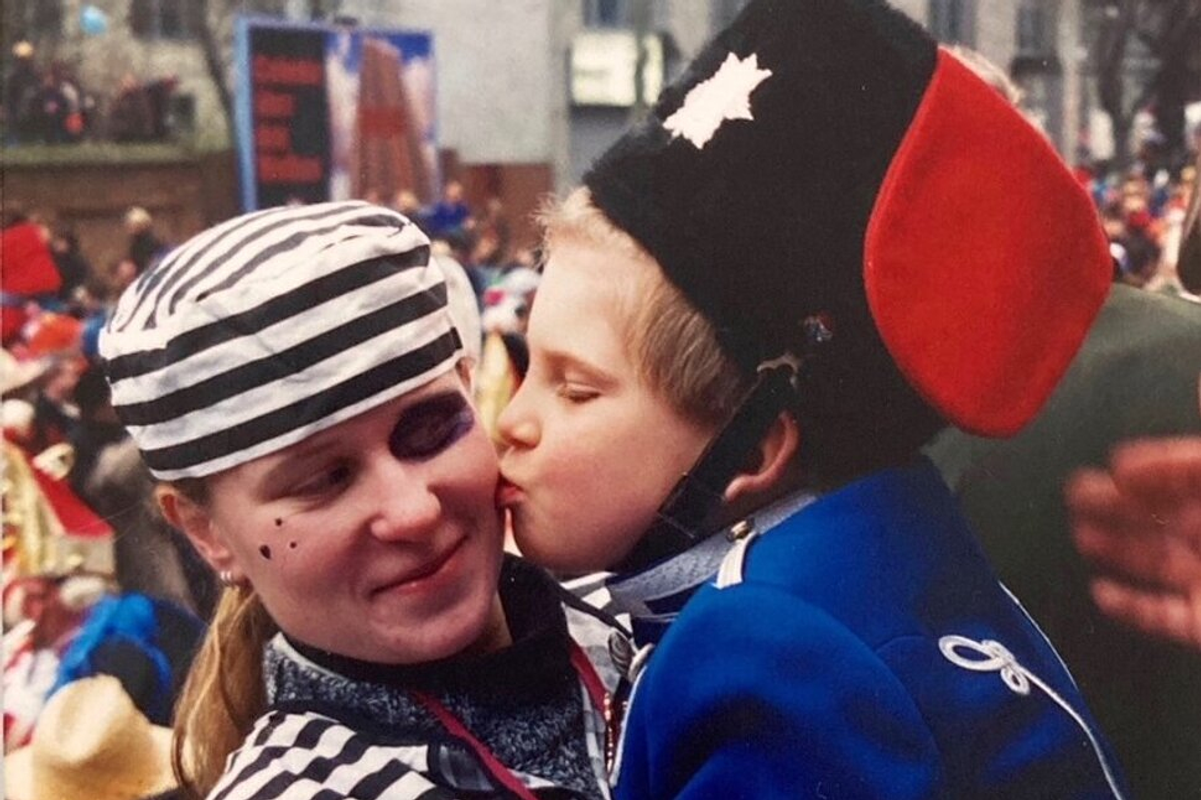 Věra Janičinová during her au pair stay in Germany in 1996. (source: Courtesy of V. J.)
Věra Janičinová during her au pair stay in Germany in 1996. (source: Courtesy of V. J.)
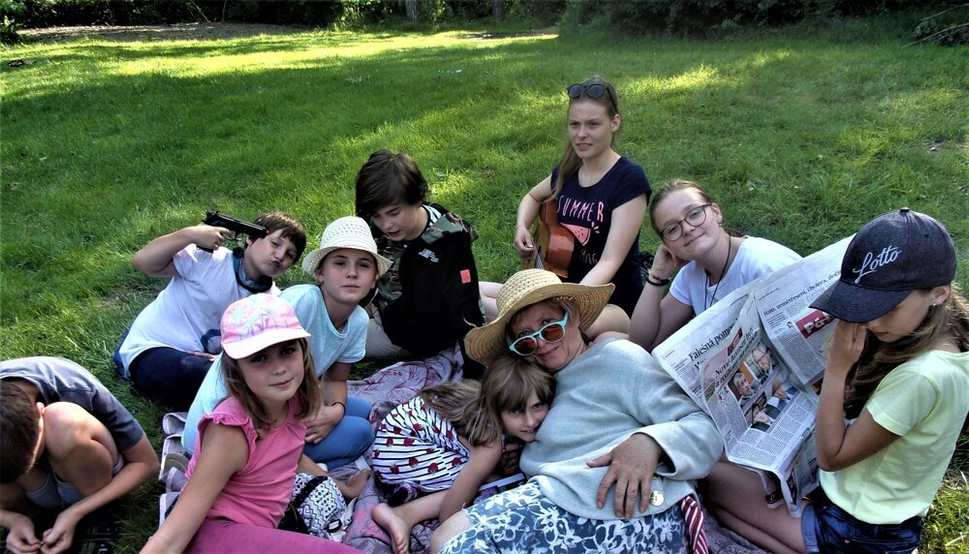 Petra Braunová became an au pair after the Velvet Revolution when she left for France. (source: Courtesy of P. B.)
Petra Braunová became an au pair after the Velvet Revolution when she left for France. (source: Courtesy of P. B.)
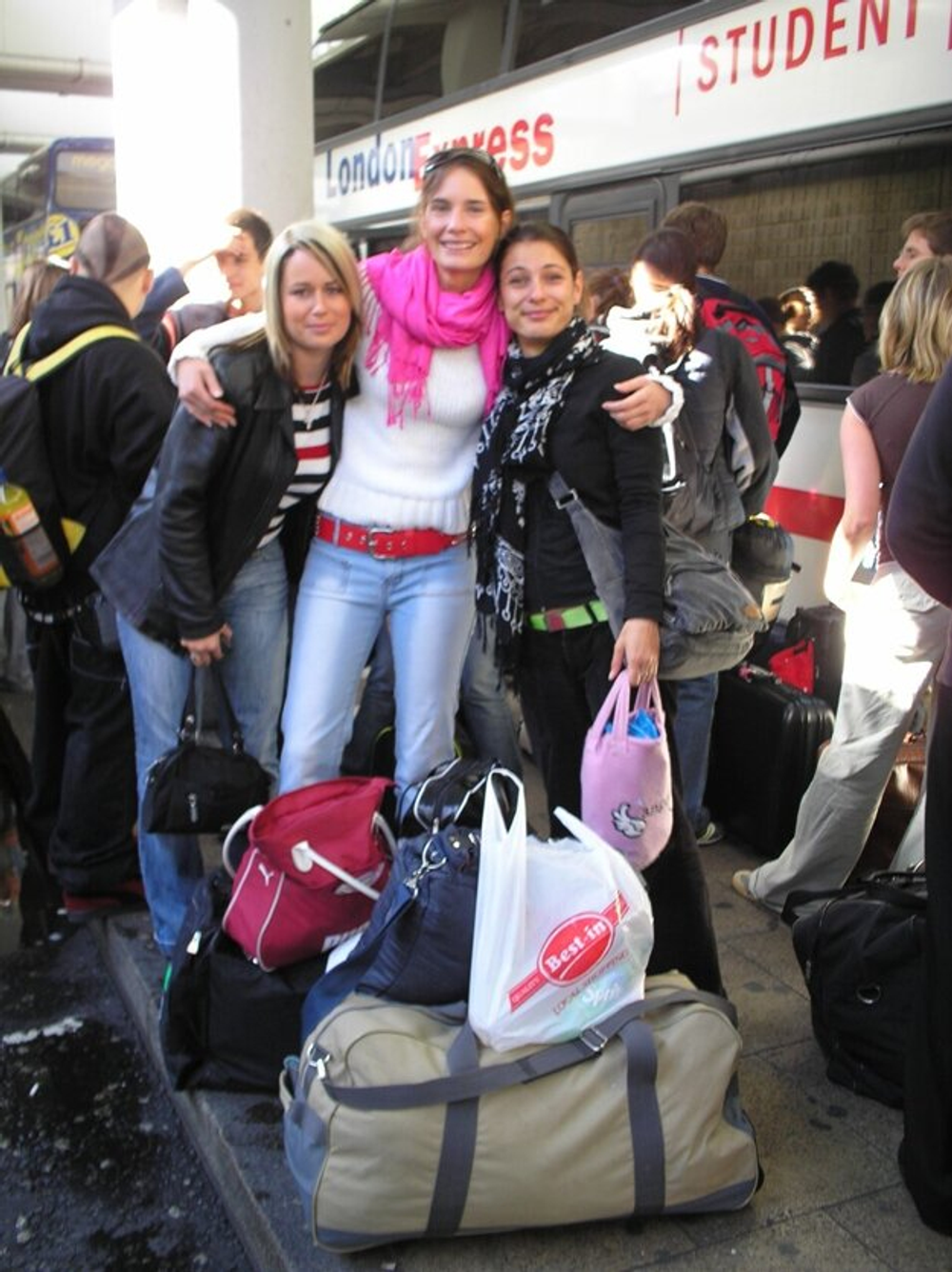 Au pairs in London. Twenty years ago, the most frequent way of travelling to Great Britain for au pairs was a bus. (source: Courtesy of Z. Sekeráková Búriková)
Au pairs in London. Twenty years ago, the most frequent way of travelling to Great Britain for au pairs was a bus. (source: Courtesy of Z. Sekeráková Búriková)
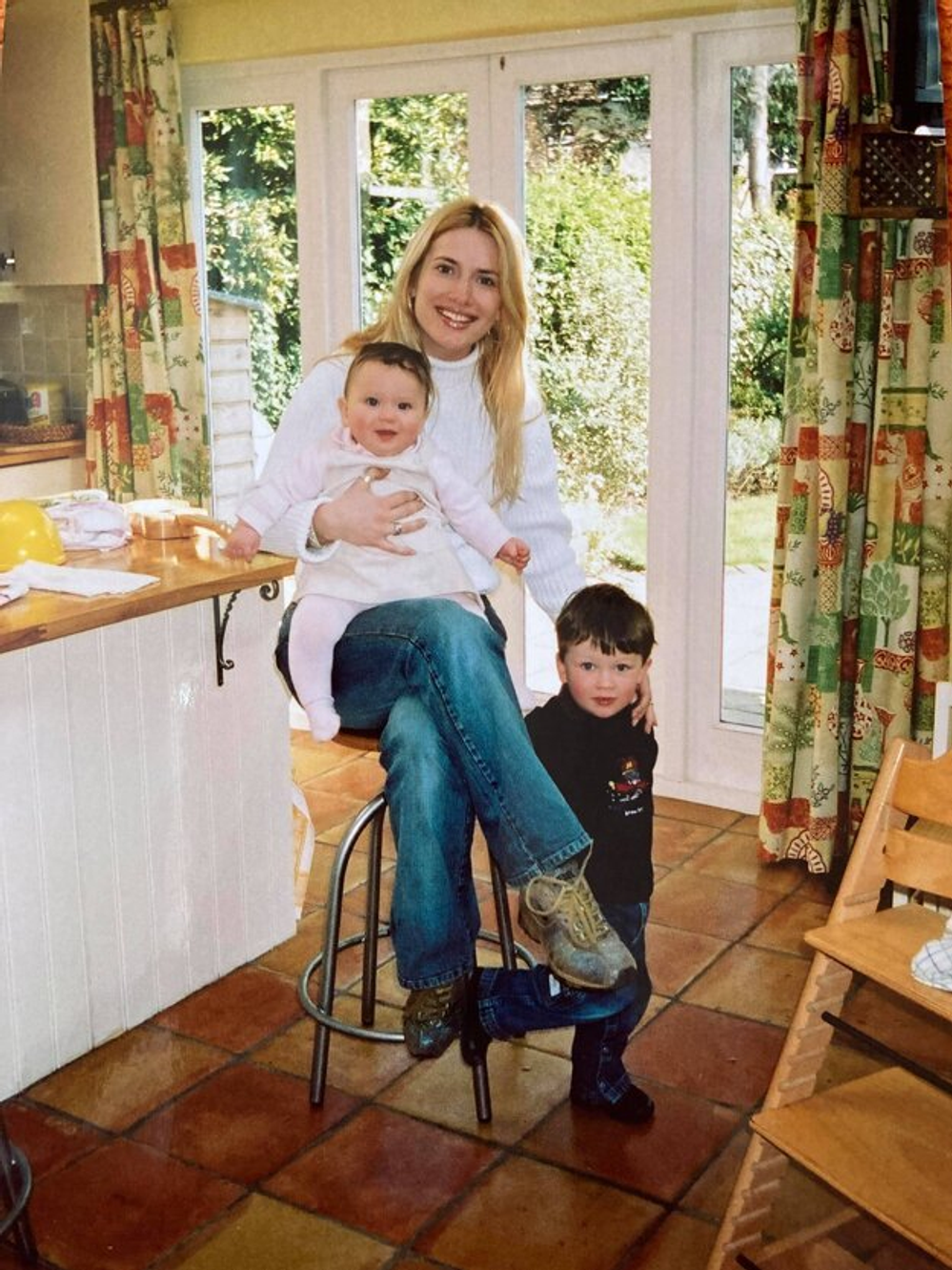 Maya Mačingová has been working as an au pair in the UK for more than 20 years. (source: Courtesy of M. M.)
Maya Mačingová has been working as an au pair in the UK for more than 20 years. (source: Courtesy of M. M.)
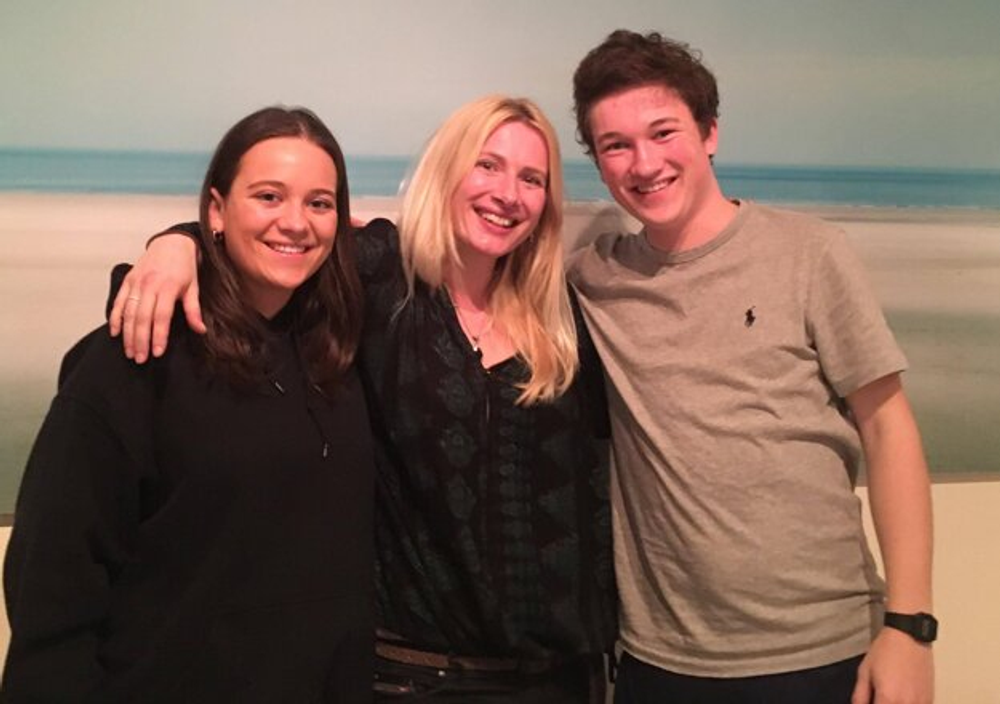 Mačingová remains in touch with "her" children. In this picture from 2018, she poses with children she looked after in 2003. (source: Courtesy of M. M. )
Mačingová remains in touch with "her" children. In this picture from 2018, she poses with children she looked after in 2003. (source: Courtesy of M. M. )
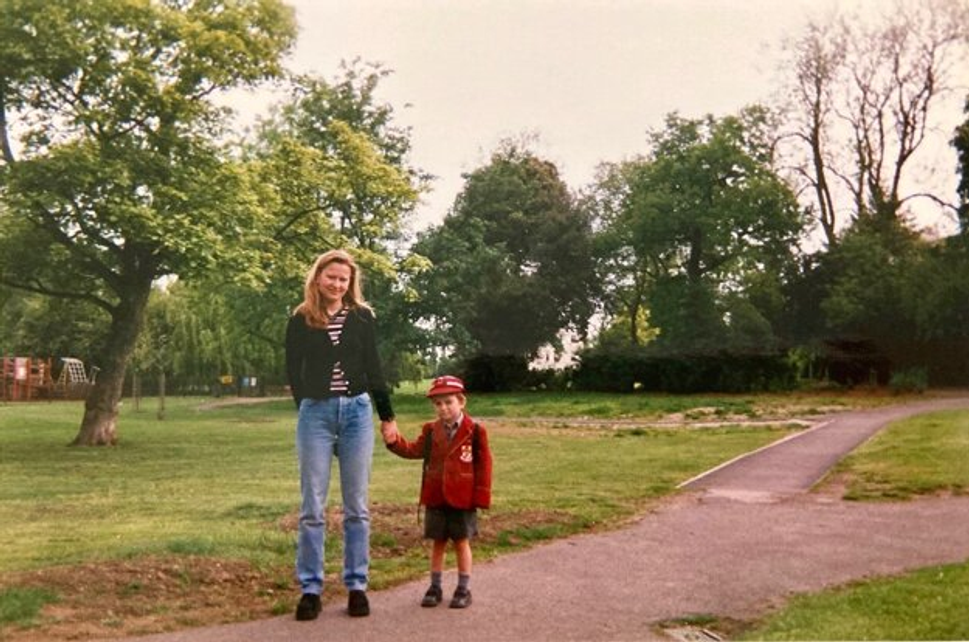 Věra Janičinová during her au pair stay in Great Britain in 1999. (source: Courtesy of V. J. )
Věra Janičinová during her au pair stay in Great Britain in 1999. (source: Courtesy of V. J. )